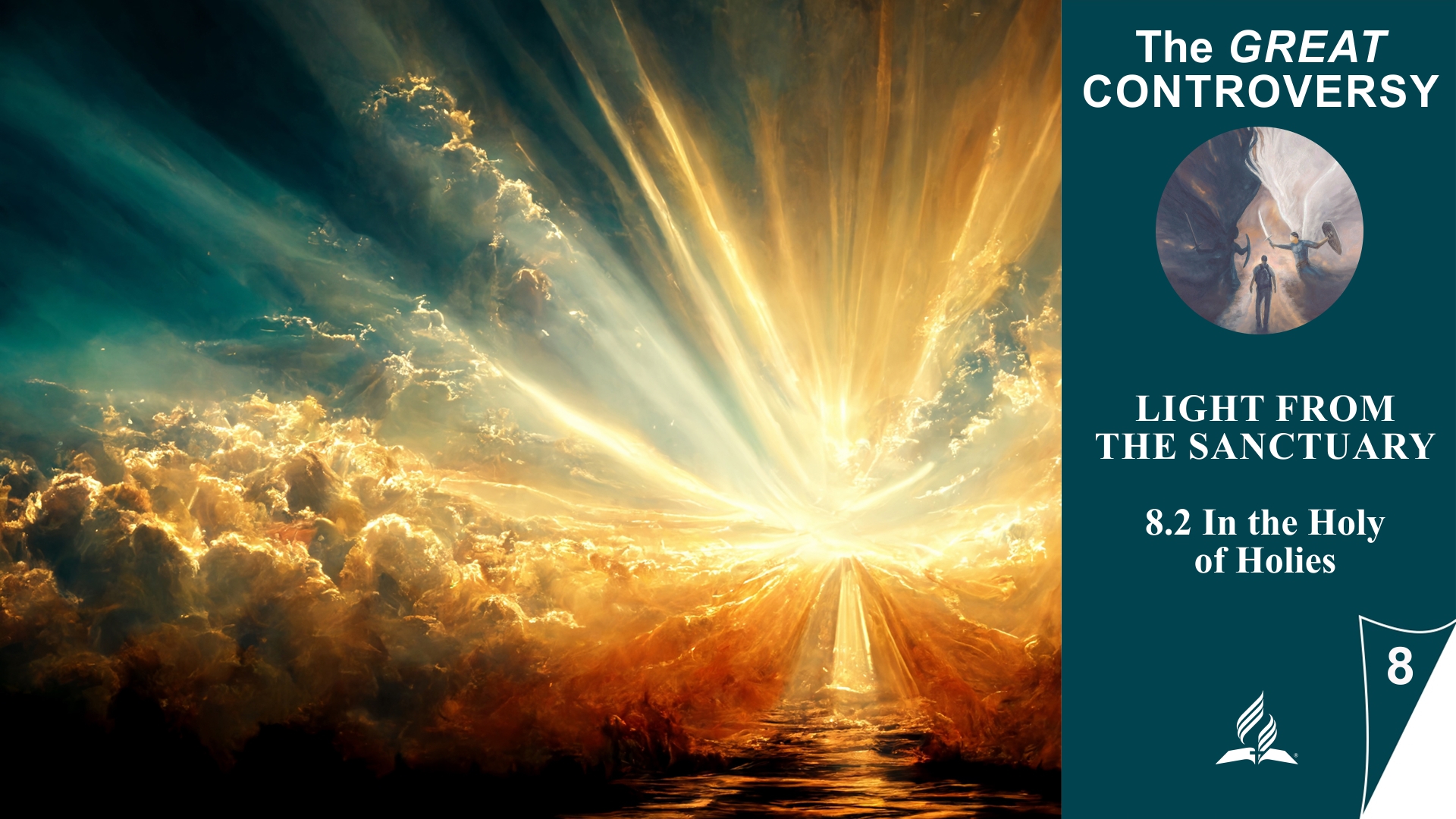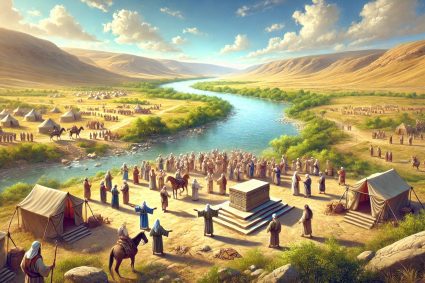


8.2 In the Holy of Holies
The Day of Atonement: Repentance, Cleansing, and Christ’s Representation
Read Leviticus 16:21, 29–34; 23:26–32 and Hebrews 9:23–28. Why was the Day of Atonement very important for ancient Israel?
The Day of Atonement, also known as Yom Kippur, was of utmost importance for ancient Israel as it symbolized the culmination of the year of repentance and forgiveness. On this day, the high priest entered the Most Holy Place of the sanctuary to intercede for the sins of the people and seek reconciliation with God. It was a day of fasting, repentance, and serious reflection on one’s personal relationship with God.
The ceremonies of the Day of Atonement, including the sacrifice of the scapegoat and the ritual cleansing of the sanctuary, underscored the pursuit of purity and reconciliation with God. The removal of the scapegoat Azazel into the wilderness symbolized the liberation of the people from their sins and their separation from sin itself.
Similarly, Jesus Christ, our High Priest in the heavenly sanctuary, fulfills the role of mediator for our sins. His substitutionary sacrifice on the cross and His ongoing intercession before God enable us to receive forgiveness and cleansing from our sins. By accepting His righteousness, we can be justified before God and lead a life of sanctification.
The Day of Atonement reminds us that through Christ, we have the opportunity to be liberated from our sins and live in communion with God. It is an encouragement to live our lives in accordance with God’s will and continually strive for holiness.

The significance of the Day of Atonement in everyday life and faith is multifaceted and profound. Firstly, it reminds us of the necessity of repentance and cleansing from sin in our lives. We all make mistakes and fall short of God’s standard, but the Day of Atonement encourages us to seriously reflect on our sins, confess them before God, and seek forgiveness. This practice of repentance and cleansing helps strengthen our relationship with God and leads us on a path of holiness.
Furthermore, the Day of Atonement highlights the significant role that Jesus Christ plays as our High Priest and Mediator. His substitutionary sacrifice on the cross enables us to receive forgiveness and reconciliation with God. By accepting His righteousness, we are justified before God and have access to a vibrant relationship with Him. This realization should permeate our daily lives as we consciously strive to follow Christ and live out His example of love, forgiveness, and purity.
Moreover, the Day of Atonement reminds us of our responsibility to continually strive for holiness. The separation of the scapegoat Azazel from Israel symbolizes our need to separate ourselves from sin and lead a life of purity and devotion. By aligning ourselves in this manner, we can live in deep and fulfilling communion with God and put our faith into action.
Overall, the Day of Atonement should influence our daily lives and faith by encouraging us to repent, cleanse ourselves from sin, and deepen our relationship with God through Christ. It reminds us that through Christ, we have the opportunity to be liberated from our sins and lead a life of holiness that honors God and serves our fellow human beings.

The Day of Atonement reminds us that Christ enables our reconciliation with God and encourages us toward sanctification.
(Visited 29 times, 1 visits today)























